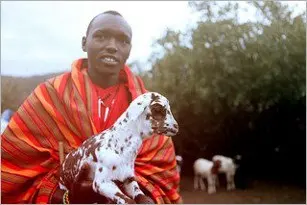The Food and Agricultural Organisation (FAO) is mobilising emergency support to control the livestock epidemic in Democratic Republic of Congo (DRC), and prevent its spread across the borders
The lethal livestock disease, known as the peste des petits ruminants (PPR), has been a threat to food security across Africa.
According to DR Congo's Directorate for Animal Production and Health, the disease has infected tens of thousands of goats, with more than 75,000 already dying from the disease.
"This is the worst livestock epidemic in the country in more than 10 years," said the FAO DRC representative Ndiaga Gueye. The current outbreaks have proven to be particularly lethal, with an 86 per cent mortality rate in goats.
The government has estimated that another one million goats and 600,000 sheep are at risk of contracting PPR. To protect the animals, farmers have been moving their herds away from infected villages, but that has only spread the epidemic to healthy flocks of animals outside the infected region.
FAO said its emergency project would provide funds for vaccinating 500,000 affected sheep and goats in areas that are unaffected, and would limit animal movements.
The UN agency added that it would raise awareness by educating farmers, increase surveillance for PPR infection and train veterinarians in field investigation techniques.
FAO chief veterinary officer Juan Lubroth said, "PPR is caused by a virus that is similar to measles in humans and rinderpest in cattle.
"Good vaccines are available and these can be key weapons in combating it. We can completely eradicate PPR should there be the political will."
Sheep and goats are generally kept by the poorest farmers in the African continent and eliminating PPR is seen as key to poverty reduction in vulnerable countries.





